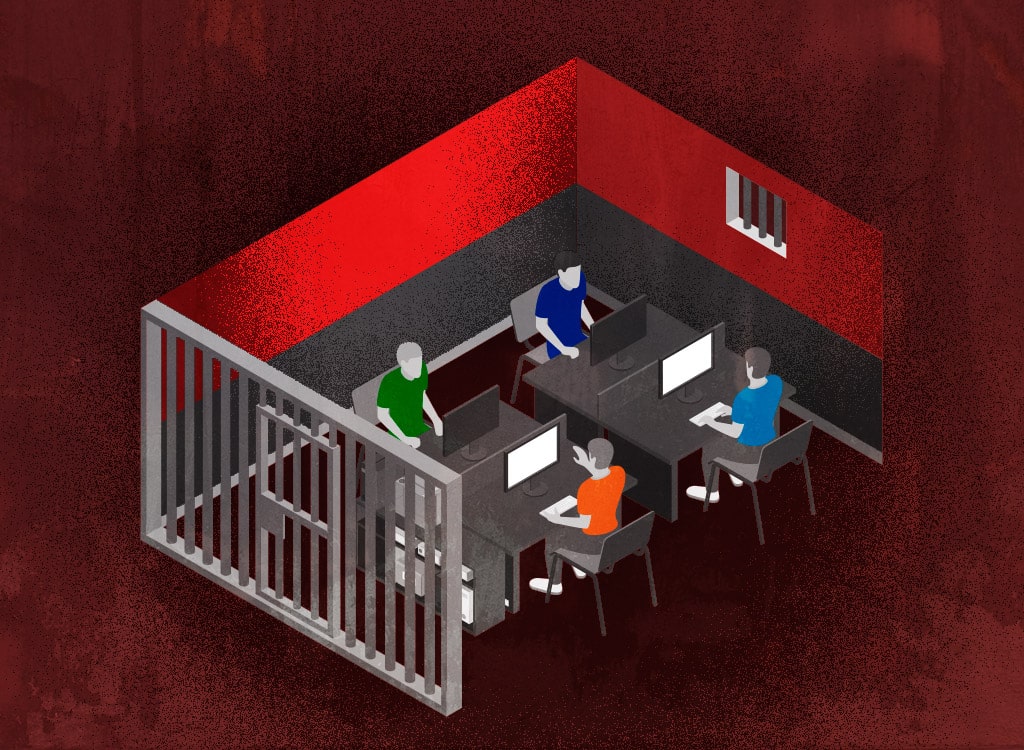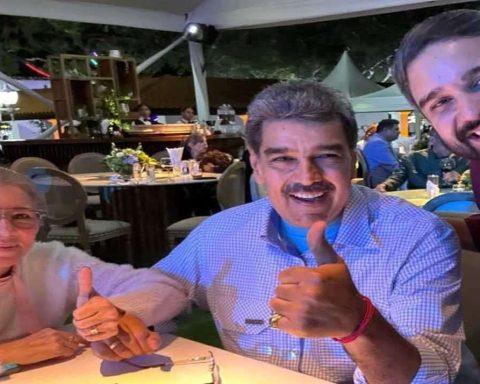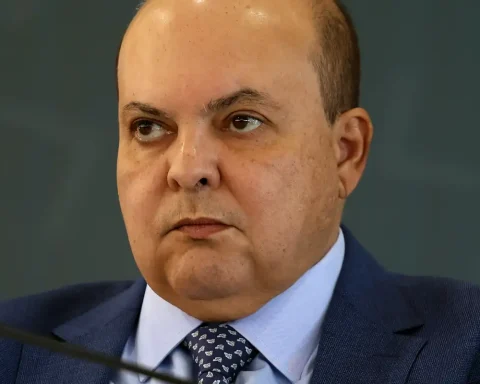“Manuel” says that he is fed up. He had to vote in the municipal elections, controlled by the regime of Daniel Ortega and Rosario Murillo, and also had to carry his entire family. This Ministry of Education worker feels “ashamed” of participating in what he calls “electoral circus.”
“We were forced to vote, we had to prove that we did, carry people, make the pantomime of celebrating, so that all the mayors of Nicaragua would be awarded. It is a lie that not even they believe it, but they expect us to do so, ”he comments.
“The worst thing is that after this we have to remain prisoners of the regime, we have to continue enduring the pressures and espionage. That is why so many are quitting and leaving fed up,” she adds.
“Manuel” describes the work environment as “heavy” because “you have to take care of what you say, of the looks you make when orders come down.” “We are prisoners in our workplacesin the street and even in the houses because we feel persecuted”, he details.
Since April 2018, the Ortega-Murillo regime has imposed a totalitarian state that controls public workers. Raising your voice, claiming for your rights or criticizing is not possible. Many have chosen to silently endure the arbitrariness of the regime, but –increasingly– some have chosen to resign or abandon their jobs to leave Nicaragua, start a business or perhaps look for another job.
In the last year, at least five Mined workers close to “Manuel” have resigned. “They leave fed up,” he insists. “It’s an open secret, but no one dares to say it, because there are people at work who burn you out and pass you the bill,” he warns.
“They want to impose silence”
“Manuel” assures that only among friends can something be criticized within the workplace. “There is more and more paranoia of those who are in charge and of the errands. There is a lot of fear, because we know that if they catch you in something they don’t like, no one will save you from that, ”he explains.
He mentions that of the five friends who resigned from the Mined, three alleged medical reasons and two left the country without saying anything. “There are some with key positions in other State institutions who cannot resign and are more closely monitored,” he points out.
“In my case I have thought about resigning. My daughter and my wife tell me, that it is better to put a little window of used clothes or food than to continue putting up with it, because we all know that they are repressive, but things are not that easy, ”she laments.
“We have to endure”
“Jamileth” assures that working in the Judiciary at this time seems “dangerous”, because it has been one of the institutions in which workers “who even seemed to be the most loyal” to the regime have been imprisoned.
“I would like to leave, resign and stop working for a government that has murdered and repressed the population, but Unfortunately, if I do, I put myself and my family at risk.some who even work in the State”, he assures.
He remembers that last year he wanted to go on vacation to the United States to visit some relatives, and they told him that “absolutely not” they would give him permission. “They claimed that the elections were close, but I know it’s that same paranoia that they don’t want anyone to leave the country”, he muses.
For “Jamileth”, the cases against three workers of the Judiciary, supposedly close to the magistrate Alba Luz Ramos; the resignation “under pressure” of Judge Ileana Pérez, who alleged health problems; and the arrest of the spokesman for the Supreme Court of Justice (CSJ), Roberto Larios, “are proof that no one is saved here.”
“The state apparatus is controlled by those loyal to Daniel Ortega and Rosario Murillo and they have created a kind of ‘Big Brother’ that watches over everything we do and say. They only need to want to control what we think ”, he affirms.
The discontent started from 2018
In most State institutions in Nicaragua, there is a good number of workers who disagree with the repression against the Nicaraguan population, with the 2018 massacre and with the rigged trials against political prisoners.
“There are many people who do not agree with the act of repression and massacre that the government has had,” he said in an interview with This week in 2020, Ligia Gómez, former manager of Economic Research at the Central Bank of Nicaragua (BCN).
Last October, “Sergio”, an official of the Judiciary for more than a decade, gave an interview to CONFIDENTIAL Y This week, in which he narrated the boredom and fear of public officials. He shared that, although they cannot express their dissident opinions in public, many in that power of the State, including those who hold high positions, do: they consider that the regime and the Sandinista Front have made serious mistakes, including persecuting and imprisoning members of the Catholic Church or isolate Nicaragua internationally.
Also “Alicia”, a professional who has been working in the State for more than 20 years and who currently holds a position at the management level of an institution, told the program This week which has witnessed the intensification of political surveillance exercised by the regime against public servants. “We feel hostage,” he assured, and described that the control system exists – not only for fear of losing our job – but also for “exposing oneself to being thrown in prison or even losing one’s life”.
Resignations “have increased”
For “Noel”, a worker at the Nicaraguan Social Security Institute (INSS), all the repressive acts of the regime “have the purpose of instilling fear, both in state workers and in the population in general.”
“The message they give us is clear: here we don’t respect anyone because of their age, or religious leaders, or people who at some point were friends with dictators,” he remarks.
This public worker believes that it is “unfortunate and it is not known how long they will stop” but he assures that he has seen “with indignation the arrests and repression against people who did nothing more than help, such as the nuns of the Missionaries of Charity”.
“They are inexplicable attacks,” he values. That is why he sees it as normal that the INSS and other state institutions have increased resignations in recent months.
“We all know someone: a neighbor, a friend, or a co-worker who has left the country. They prefer to take risks than continue to endure in this country aimlessly, ”he says.
“Noel” mentions that “there are more and more resignations” and that among those close to them “many comment that they think about migrating or putting a little window in their house.”
“There are many dangerous fans”
For “Verónica”, a health center worker, it is annoying to have to participate in marches and mandatory political activities of the Government. “But there are a lot of people who love to ride those things, just to mess around or because they are fans.”
“The danger in all institutions is that there are officious people who are dedicated to spying on others and seeing who could be a traitor. I think that this fear exists and it is what they have been in charge of making us believe, and that is why there is a lot of fear within the institutions, ”she asserts.
He admits that any criticism – no matter how small – “is frowned upon” and is even reason enough “for your superior to call you and ask you to reflect”.
Her husband has tried to convince her to resign and she does not rule out leaving the country at some point. “You feel that for what you are paid it is not worth enduring that pressure, but above all she – she adds – cannot stand living under a dictatorship that suffocates you”.

















